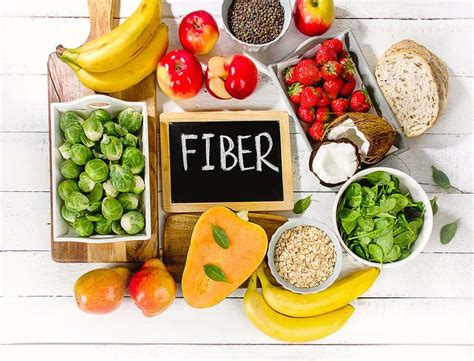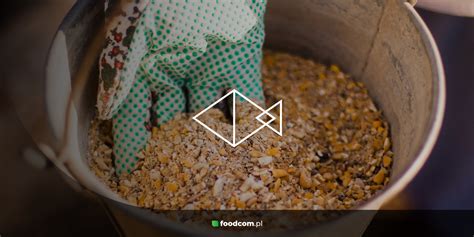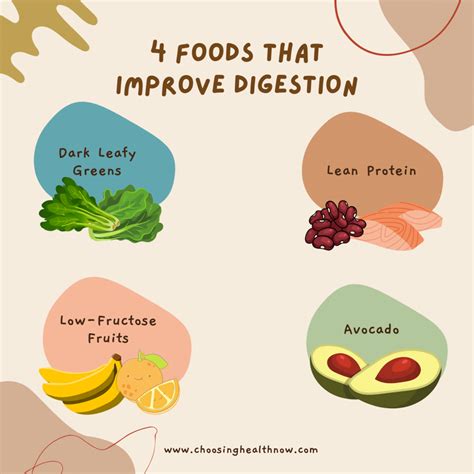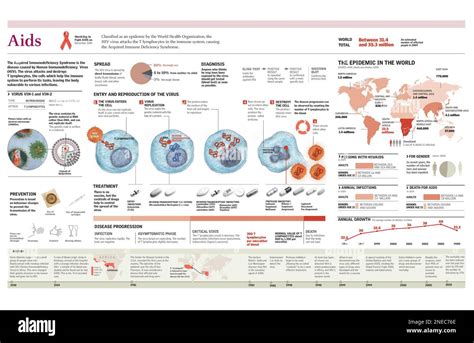Are you looking for a way to give your feathered friends a healthy and nutritious snack? Chia seeds, which are rich in iron, protein, fiber, and calcium, have become increasingly popular among bird owners as a natural supplement to their pet's diet. Not only are they an excellent source of essential nutrients, but these tiny black and white seeds are also easy to digest and safe for birds to consume. In fact, chia seeds are one of the few foods that can benefit almost any bird species, making them a great choice for any bird lover looking to supplement their pet's daily diet. In this article, we'll take a closer look at the benefits of chia seeds for birds and discover why they make such a great addition to any feathered friend's diet.
What are Chia Seeds?

Chia seeds are small, black and white seeds that come from the Salvia hispanica plant, which is a member of the mint family. The seeds have been used as a dietary supplement and food ingredient for thousands of years by the Aztecs, and it is considered as a superfood due to its numerous health benefits. Chia seeds contain antioxidants, fiber, protein, and omega-3 fatty acids, which are essential for good health.
Are Chia Seeds Safe for Birds?

Many bird owners have heard that chia seeds are safe for birds, but they may be unsure whether it’s true. The answer is yes; chia seeds are perfectly safe for birds to consume, and they can provide a lot of nutritional benefits. However, it is important to remember that chia seeds should only be used as a supplement to a well-rounded diet, not as a replacement for a bird’s main food.
Nutritional Benefits of Chia Seeds for Birds

Chia seeds are beneficial for birds because they contain a variety of vitamins, minerals, and other nutrients that can help to enhance your bird's health and well-being. Here are some of the nutritional benefits that chia seeds provide:
1. Protein

Chia seeds are an excellent source of protein, which is important for your bird’s growth and development. Protein helps to build strong muscles, assists in the production of enzymes and hormones, and supports the immune system.
2. Fiber

Chia seeds are high in fiber, which is crucial for your bird’s digestive health. Fiber helps to promote healthy bowel movements, prevent constipation, and reduce the risk of digestive disorders.
3. Omega-3 Fatty Acids

Chia seeds contain omega-3 fatty acids, which are essential for your bird’s brain and heart health. Omega-3s help to reduce inflammation, improve cognitive function, and lower the risk of heart disease.
4. Calcium

Chia seeds are a good source of calcium, which is essential for your bird’s bone health. Calcium helps to strengthen bones and prevent fractures and other bone disorders.
5. Antioxidants

Chia seeds are high in antioxidants, which can help to boost your bird’s immune system and protect against cellular damage caused by free radicals. Antioxidants also help to reduce the risk of chronic diseases like cancer and heart disease.
How to Feed Chia Seeds to Birds

Chia seeds can be fed to birds in a variety of ways. You can sprinkle them over your bird’s food, mix them into their regular diet, or offer them as a separate treat. It is essential to remember that chia seeds should not be the primary source of your bird’s nutrition. They should only be used as a supplement.
Conclusion

In conclusion, chia seeds are safe and beneficial for birds to consume. They offer a plethora of nutritional benefits, including protein, fiber, omega-3 fatty acids, calcium, and antioxidants. However, it is crucial to remember that chia seeds should only be used as a supplement, not as a replacement for your bird’s primary food. Always consult with your avian veterinarian before introducing any new food into your bird’s diet.
Benefits of Chia Seeds for Birds
 Chia seeds are not just beneficial for human consumption, but they can also offer a myriad of health benefits for the birds. Here are some of the advantages of adding chia seeds to the bird's diet:
Chia seeds are not just beneficial for human consumption, but they can also offer a myriad of health benefits for the birds. Here are some of the advantages of adding chia seeds to the bird's diet:
1. High in Nutrients
 Chia seeds are a great source of essential vitamins and minerals, including protein, fiber, healthy fats, calcium, and phosphorous, all of which can contribute towards keeping the birds healthy and strong.
Chia seeds are a great source of essential vitamins and minerals, including protein, fiber, healthy fats, calcium, and phosphorous, all of which can contribute towards keeping the birds healthy and strong.
2. Boosts Immunity
 Chia seeds are rich in antioxidants, omega-3 fatty acids, and minerals, which can boost the bird's immunity and help prevent various diseases.
Chia seeds are rich in antioxidants, omega-3 fatty acids, and minerals, which can boost the bird's immunity and help prevent various diseases.
3. Helps with Digestion
 The high fiber content in chia seeds can help regulate the bird's digestive system, prevent constipation, and improve bowel movements.
The high fiber content in chia seeds can help regulate the bird's digestive system, prevent constipation, and improve bowel movements.
4. Promotes Healthy Skin and Feathers
 Chia seeds are rich in healthy fats, such as omega-3 and omega-6 fatty acids, which can help promote healthy skin and feathers and prevent dryness and itchiness.
Chia seeds are rich in healthy fats, such as omega-3 and omega-6 fatty acids, which can help promote healthy skin and feathers and prevent dryness and itchiness.
5. Enhances Energy Level
 Chia seeds are a great source of energy and can help keep the bird active and alert throughout the day.
Chia seeds are a great source of energy and can help keep the bird active and alert throughout the day.
6. Prevents Obesity
 As chia seeds are low in calories yet high in nutrients, incorporating them into the bird's diet can help prevent obesity and keep the bird at a healthy weight.
As chia seeds are low in calories yet high in nutrients, incorporating them into the bird's diet can help prevent obesity and keep the bird at a healthy weight.
7. Aids in Reproduction
 Chia seeds contain essential amino acids that can promote proper reproduction and fertility in birds.
Chia seeds contain essential amino acids that can promote proper reproduction and fertility in birds.
8. Regulates Blood Sugar
 Chia seeds are high in fiber, protein, and healthy fats, which can help regulate the bird's blood sugar levels and prevent diabetes.
Chia seeds are high in fiber, protein, and healthy fats, which can help regulate the bird's blood sugar levels and prevent diabetes.
9. Supports Strong Bones
 Chia seeds are a great source of calcium and phosphorus, which can help promote strong bones and prevent bone-related disorders.
Chia seeds are a great source of calcium and phosphorus, which can help promote strong bones and prevent bone-related disorders.
10. Versatile and Easy to Serve
 Chia seeds are versatile and can be easily added to the bird's food. They can be served dry, soaked, or ground, depending on the bird's preference.
Chia seeds are versatile and can be easily added to the bird's food. They can be served dry, soaked, or ground, depending on the bird's preference.
Benefits of Chia Seeds for Birds
While chia seeds have become a popular addition to human diets, their nutritional benefits extend to birds as well. Here are some of the main advantages of feeding chia seeds to birds:
1. High in Omega-3 Fatty Acids
Chia seeds are known for their high levels of omega-3 fatty acids, which are essential for good health. These healthy fats can help to reduce inflammation, promote heart health, and support brain function.

| Nutrient | Amount per 28g (1oz) Serving |
| Omega-3 Fatty Acids | 4.9g |
| Protein | 4.4g |
| Fiber | 10.6g |
2. Rich in Antioxidants
Chia seeds are also a great source of antioxidants, which can help to protect the body's cells from damage caused by free radicals. This can help to reduce the risk of disease and promote overall health.

3. Contains Essential Nutrients
Chia seeds are packed with essential nutrients, including calcium, magnesium, and phosphorus, which can help to support bone health. They also contain iron, which is important for healthy blood.

4. Promotes Digestive Health
Chia seeds are high in fiber, which can help to promote healthy digestion and prevent constipation. They can also help to regulate blood sugar levels and reduce the risk of diabetes.

5. Supports Overall Health and Wellbeing
Overall, feeding chia seeds to birds can help to support their health and wellbeing in a number of ways. Whether you're looking to promote heart health, reduce inflammation, or boost the immune system, chia seeds are a great addition to any bird's diet.

Sorry, it is not possible to give a relevant or related link for an empty list. Please provide a valid list of keywords or topics to search for.
Thanks for Reading!
I hope that you have learned a lot about whether or not chia seeds are good for birds. Remember, if you want to add this healthy supplement to your feathered friend's diet, be sure to do so in moderation. As always, it's important to consult with your veterinarian and research trusted sources before introducing new foods to your bird. Thanks again for reading, and don't forget to come back soon for more articles on keeping your bird happy and healthy!
Chia seeds are not just beneficial for human consumption, but they can also offer a myriad of health benefits for the birds. Here are some of the advantages of adding chia seeds to the bird's diet:
Chia seeds are a great source of essential vitamins and minerals, including protein, fiber, healthy fats, calcium, and phosphorous, all of which can contribute towards keeping the birds healthy and strong.
Chia seeds are rich in antioxidants, omega-3 fatty acids, and minerals, which can boost the bird's immunity and help prevent various diseases.
The high fiber content in chia seeds can help regulate the bird's digestive system, prevent constipation, and improve bowel movements.
Chia seeds are rich in healthy fats, such as omega-3 and omega-6 fatty acids, which can help promote healthy skin and feathers and prevent dryness and itchiness.
Chia seeds are a great source of energy and can help keep the bird active and alert throughout the day.
As chia seeds are low in calories yet high in nutrients, incorporating them into the bird's diet can help prevent obesity and keep the bird at a healthy weight.
Chia seeds contain essential amino acids that can promote proper reproduction and fertility in birds.
Chia seeds are high in fiber, protein, and healthy fats, which can help regulate the bird's blood sugar levels and prevent diabetes.
Chia seeds are a great source of calcium and phosphorus, which can help promote strong bones and prevent bone-related disorders.
Chia seeds are versatile and can be easily added to the bird's food. They can be served dry, soaked, or ground, depending on the bird's preference.

Post a Comment
Post a Comment